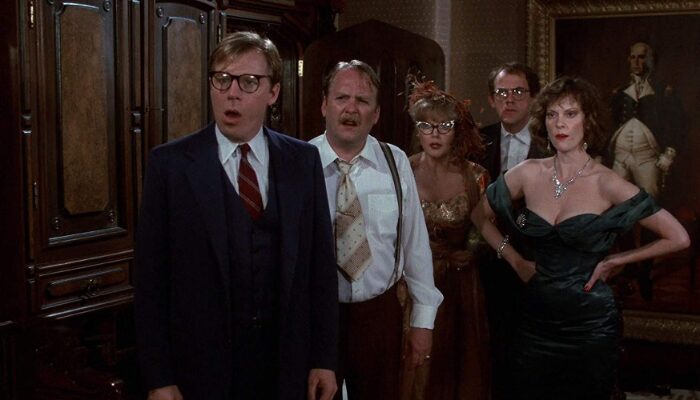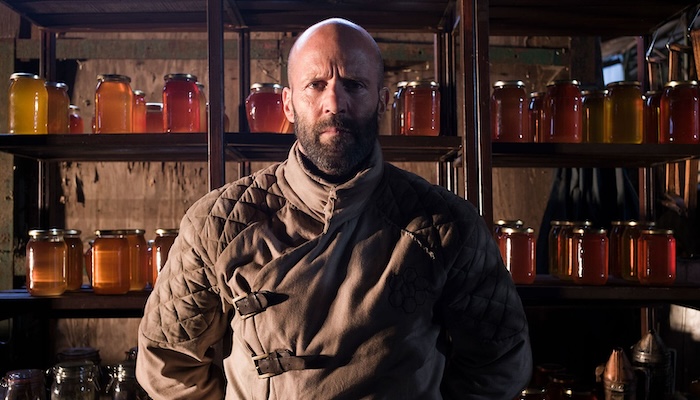Film Review: BAD GENIUS: Smart Enough for its Own Good [NYAFF 2017]
Bad Genius Review
Bad Genius (2017) Film Review from the 16th Annual New York Asian Film Festival, a movie directed by Nattawut Poonpiriya, and starring Chutimon Chuengcharoensukying, Chanon Santinatornkul, Eisaya Hosuwan, Teeradon Supapunpinyo, Sarinrat Thomas, and Thaneth Warakulnukroh.
You don’t have to be a genius to understand the set-up to ‘Bad Genius;’ but it does help in getting to understand the perspectives from which the film introduces itself with. Lynn (Chutimon Chuengcharoensukying) is a genius in nearly every intellectual & academic sense of the word. She is not, however, socially or interpersonally handicapped – making her character accessible both to viewers, and other characters. While genius provided the core of the story, it was interpersonal relationships that carried it.
Along the way, themes of relatability, peer pressure, and exploitation would re-occur; but the whole exercise bears out better in sections.
Meet the Mathletes
The film’s opening flashback quickly established Lynn’s genius, in decisive fashion, while also providing baseline motivation for her main plot actions.
It also established how integral mathletics would be to that plot; so there were moments I just had to smile along, with glazed-over eyes.
Unlike Lynn, Bank (Chanon Santinatornkul) was introduced with a problem, rather than a solution. He was something of a genius rival to Lynn; but the issue came over the romantic tension that preceeded this rivalry. Bank had similar motivations to Lynn, but also an ear for Classical music; a fact that would factor in later.
Meet the Math-cheats
Grace (Eisaya Hosuwan) was the charisma. The wide-eyed sociable type, that could barely contain any enthusiasm, and often get themselves – and lead others – into trouble before realizing it. Grace may have long acknowledged a weakness in intellect; but upon meeting Lynn, that detail loomed very large.
Pat (Teeradon Supapunpinyo) was the boy third wheel. That pretty much spoke for itself. Worse than that, he was handsome, rich, and popular; so a certain sense of entitled expectation followed him. His being Grace’s boyfriend brought Lynn to his attention. Lynn being Grace’s bestie brought Pat a priceless opportunity. Giving Lynn a glimpse of the good life made that seem mutual.
If the shoe fits: fine. If it doesn’t: take pride in getting away with it
Bad Genius makes a deliberate effort to portray the trials of youth as moments of life-or-death dramatics. Well, I was a youth, once (really) – at a 1st ranked academy, even – so I feel the need to say something about the effort. Yes. Yes, it felt every bit as overwhelmingly melodramatic as this film made it out to be. My experience was also a crash course in scheming, AIR; so maybe I had a bias for this film, coming in.
Between Pat’s need to succeed, and Grace’s go-getter attitude (she really was too wide-eyed earnest to be considered opportunistic), the fix was already there. Without Lynn, however, the fix wasn’t in; and Lynn was much too smart to fall into it.
Lynn was also a good friend, and dutiful daughter. Underhanded tuition policies, domestic issues, and a dutifully mute father didn’t help. Somewhere between her sense of responsibility, and her pride in her own intellectual talent, Lynn saw an opportunity of her own worth seizing.
Some say that math is the music of the Universe (in which case, I’d be the guy bringing tomatoes to every concert); so Lynn’s initial scheme was fitting, in that regard. It also fit expectations of her upperclass clientele, for extra genius points. Unfortunately, her initial success meant an expansion to her operation; and the more moving parts to a machine, the more likely it breaks down.
Pencils Down
It didn’t take a genius to piece together what Lynn was doing, but it did make it easy for one. Bank stumbled unto the operation, but in a way he was too high-minded to recognize, for what it was.
I’d like to say that Lynn should’ve been able to get out of her first stumble, with the simplest of explainations; but I got decades of word-weaseling & emotional detachment on her character.
It was where the film set its conflict. Pat’s high bar raised the stakes for Grace, who then passed them on to Lynn. At this point, Lynn already had one strike working against her. The downside to being a genius, however, is that sometimes your mind has a mind of its own.
The mind wants what the mind wants, and for what Lynn had in mind, a more heart-felt mind was needed.
At this point, the roles of exploiters & exploited reversed, somewhat.
Breaking Bank
Between his acknowledgement of Lynn as an intellectual peer, and his affinity for her, personally, Bank was sympathetic enough to approach. Unfortunately, he was also too upstanding to be a cheat, for any reason. An insane wise-guy (who may-or-may-not have been so serious) once insisted that all it takes is a little push, for good people to do bad things. Well, Bank got pushed, and pushed hard. With a carefully cultivated future seemingly out of his grasp, Bank became amiable to Lynn’s enterprise.
Things would’ve been fairly cut-and-dried, at this point – with the combined brain power seemingly covering every angle – but when you try to bag someone smarter than you, expect them to recognize the stitching.
It turned out that Bank’s push came from a familiar shove, and the brain trust was over.
Sydney & Bust
Where trust failed, pragmatism prevailed. Indignant rage can be a powerful motivator, and in this case, one player’s good intentions paved the way for a purely transactional collaboration. From this narrative low-point, the story became pure heist. It didn’t matter that our two geniuses were up to the initial task – the film conveyed their stress over the stakes involved. Of course, Bank’s break scene would’ve been something of a throwaway, had he not shared some of that stress with the one that shoved him; but the Sydney job generated suspense to spare.
As carelessly as it was handled, some regard must have went into Bank’s conduct under direct pressure, for the push idea. That detail factored centrally, when the inherent liability to their plan materialized. It would be easy to dismiss how this pressure was transmitted to Lynn, in turn; but under those circumstances, even go-to solutions can be forgotten. To the film’s credit, it did a decent job of depicting just such a scenario.
The real world becomes fantasy, and that fantasy seems literal.
There was one surreal moment that just seemed odd, however, as a Lynn gambit required a lapse in Moderator attention, that belied signs that the authorities were on to something being amiss.
Dramatic liscense or not, it marked a transition point, from caper to chase, as the last genius standing had to get the ball to the goal – and past the defenders.
At the other end of the chase was a pivotal moment, that would reflect on where the interpersonal elements of the film could be headed. Any question about honor among thieves seemed to be answered, at this point, along with where the needle would fall, between friendship & exploitation.
In some ways, the answer was relatively typical. Fortunately, the story wasn’t through asking.
We’ll always have Sydney
For all the Sydney job was made out to be, it wasn’t what we were primed for, at the start of the film. Of course, by the time this is made clear, the plot had already gotten clear of what viewers might’ve expected, from the previous act; but I appreciated the extra layer being slipped in. The fallout we were primed for wasn’t a consequence of the plan’s failure; but the result of how everything that went into it changed those involved.
The film wasn’t satisfied with just breaking down character roles between peers & cliques, friends & romantic interests, or exploiters & exploited. Instead, we got a fluid interchange of all of the above. No one came out of Grand Plan the way they went in, and even the winners were losers.
Even if the resolution would not prove the most satisfying, to some, it at least came across as both intellectually, and morally honest – as a good a result as the film’s set-up could deliver, I feel.
Bad Genius made a complicated plan seem simple, simple relations complicated, and singular moments in time seem more important than they actually may have been. Regardless of how removed (or evolved) your perspective may be from its characters, at least keep in mind that it all at least felt as such, to all involved. In conveying the gravity of events, from the perspective of all involved, the film scores pretty well.
You don’t have to be a genius to appreciate Bad Genius. That’s all.
Rating: 7/10
Leave your thoughts on this Bad Genius review below, in the comments section. For more film reviews, visit our Movie Review Page, our Movie Review Facebook Page, and our Movie Review Google+ Page. Want up-to-the-minute notifications? FilmBook staff members publish articles by Email, Twitter, Tumblr, Google+, and Facebook.
Related Articles
FilmBook's Newsletter
Subscribe to FilmBook’s Daily Newsletter for the latest news!













